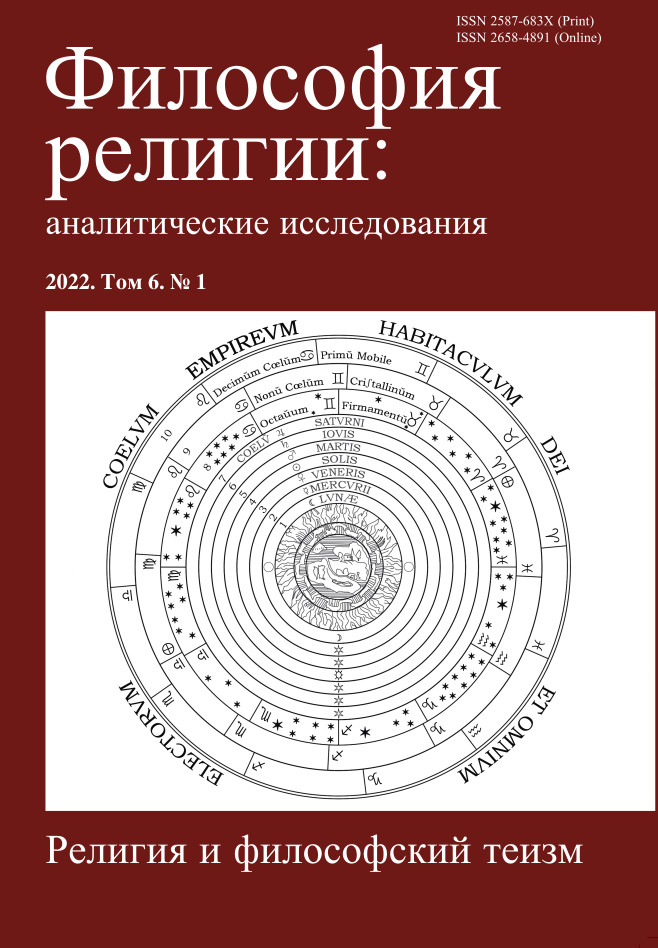Theology in the Mirror of Cognitive Religious Studies
DOI:
https://doi.org/10.21146/2587-683X-2022-6-1-147-161Keywords:
religious studies, cognitive religious studies, psychology of religion, anthropology of religion, superhuman agency, morality, ritual, S. Guthrie, H. Whitehouse, P. BoyerAbstract
The article is a reflection on the achievements and methodology of the cognitive science of religion and is based on the book by C. White, An Introduction to the Cognitive Science of Religion, 2021 The author briefly considers the history of cognitive religious studies, highlighting the achievements of its classics, S. Guthrie, H. Whitehouse, P. Boyer, J. Barrette, and others, and analyzes its basic concepts: the building blocks approach, a dual-process model of consciousness, the theory of evolutionary adaptation, and the hypothesis of minimal counterintuitiveness. The main research interests of cognitive science are centered on five topics: the nature of the universe, life after death, supernatural agents, morality, and ritual. The analysis of the central topic of cognitive research, the theory of supernatural agents, shows the ambiguity of the heuristic boundaries of this theory. Considering the methodological moves and conceptual constructions, the author questions the presuppositions chosen by cognitive scientists as axiomatic grounds for research as well as the appropriateness of field research on which their main conclusions are based, and demonstrates that, from the point of view of the history of religious studies, the achievements of cognitive scientists are but a modern form of evolutionism proposed by E. Tylor.Downloads
Published
2022-04-19
Issue
Section
BOOK SYMPOSIUM
How to Cite
Theology in the Mirror of Cognitive Religious Studies. (2022). Philosophy of Religion: Analytic Researches, 6(1), 147-161. https://doi.org/10.21146/2587-683X-2022-6-1-147-161

 This work is licensed under a
This work is licensed under a 
